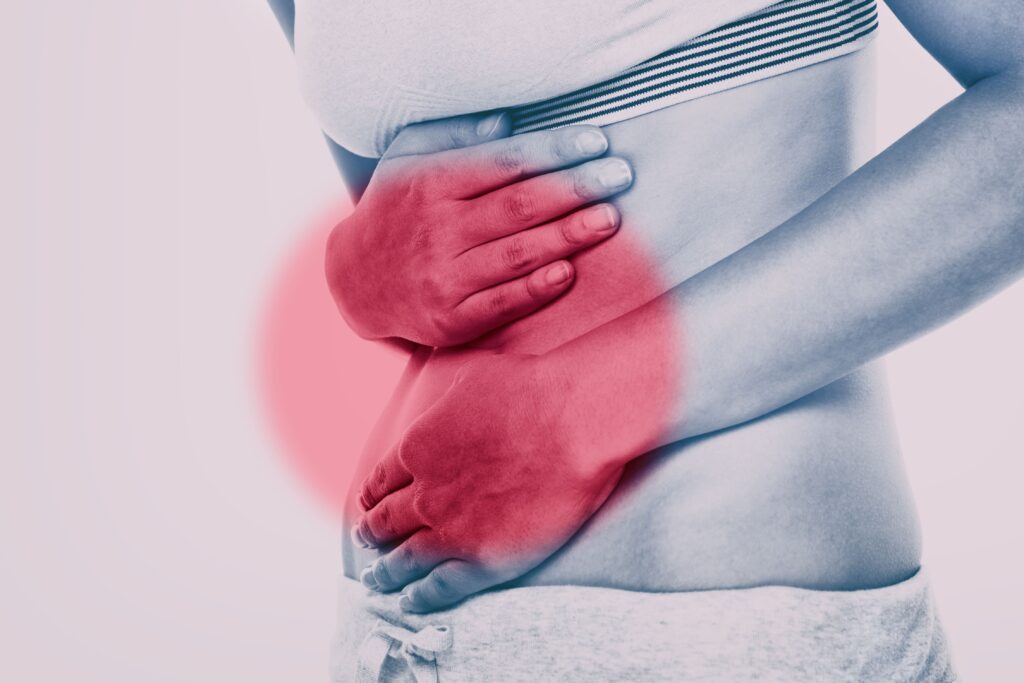
What is IBS?
Irritable bowel syndrome (IBS) is a group of symptoms that affect your intestines. These symptoms usually occur together but may vary in severity. If you have IBS symptoms for at least three days per month for three months, then you have IBS. In this article we’ll discuss the symptoms and causes of IBS. We’ll also discuss treatment options including Chinese Medicine.
IBS Symptoms:
If you have IBS, you may get symptoms like:
- Bloating
- Gas
- Abdominal pain or cramps
- Constipation
- Diarrhoea
While some people experience continuous symptoms, others may have symptoms that come and go. If you suffer from bloating or gas, these symptoms may subside after you have a bowel movement. Some people with IBS may experience constipation as well as diarrhoea. IBS symptoms are more common in women than men, and may worsen around the time of menstruation.
What Causes IBS?
There are many factors which may cause your IBS symptoms. Possible IBS causes include:
- Previous infections in your intestines
- Sensitive colon
- Sensitive immune system
- Mild celiac disease
- Stress – stress can affect the nervous system and immune system, which can both affect digestion
Certain foods (like dairy, fried foods, and caffeine) may also trigger your IBS symptoms.
IBS Treatment:
Fortunately, you can usually treat IBS symptoms through lifestyle adjustments. These include modifying your diet and exercise routine, as well as stress management.
Diet for IBS:
Adjusting what and how you eat can have a big effect on your digestive system. Since we all have different bodies, we all need to discover eating habits that positively influence our health. For long term results, you may wish to make gradual adjustments to your diet, to maintain a steady recovery. Adjustments could include:
- Adding probiotics (kombucha, kimchi, sauerkraut)
- Removing triggers (dairy, gluten, fried or spicy food)
- Including spices and herbs (fresh ginger, chamomile, or peppermint tea)
If you simply eat too much at mealtimes, try eating slightly less.
Exercise for IBS:
Getting some healthy movement into your day can really boost your digestion. You might like to try yoga, bush walks, or even swimming. Remember, always exercise when your stomach is relatively empty.
Managing Stress for IBS:
A good saying to remember is: “fight or flight/rest and digest”. This means that if we are stressed, our digestion slows down to enable us to escape from danger. Once we are safe, we should become relaxed again, allowing digestion to continue. However, stress is our constant companion in the current age. That means we need to actively manage stress levels through meditations like relaxation, yoga, breathing exercises or mantra/music meditation.
Medications:
If your IBS symptoms don’t get better with lifestyle adjustments, your doctor may recommend medications. However, you always have the option of working towards a natural lifestyle that works for your body. Medications may help to reduce or suppress your symptoms temporarily, but they rarely solve the underlying health problem. Remember to gather enough information to make an informed decision before taking any medication, as these often come with the risk of adverse side effects.
How Can Chinese Medicine Help?
If you’re looking for a natural, effective treatment option for IBS, Chinese Medicine could be right for you. Chinese Medicine treats symptoms like IBS by addressing the underlying health problems in your body. In Chinese Medicine, symptoms occur due to disease within the body. This could be an imbalance in the energy of different organs (like a weak colon or stomach), or an imbalance of Yin and Yang, or heat and cold.
Your Chinese Medicine practitioner can analyse your symptoms to diagnose any imbalances in your body. From there, your practitioner can create a unique treatment plan to suit your individual situation. This could include Chinese Medicine herbs or acupuncture treatment. These treatments work to rebalance your underlying health problems to allow your body to heal.
Conclusion:
Overall, IBS is a group of intestinal symptoms like gas, constipation, diarrhoea, and abdominal pain. IBS can be caused by various factors and can usually be treated through lifestyle adjustments. Chinese Medicine is also an excellent treatment for IBS, as it deals with your underlying health problems, which allows your body to heal naturally.
References:
Herndon, J. (2019, March 7). Everything You Want to Know About IBS. Healthline. https://www.healthline.com/health/irritable-bowel-syndrome
Palsdottir, H. (2022, January 6). 11 Probiotic Foods That Are Super Healthy. Healthline. https://www.healthline.com/nutrition/11-super-healthy-probiotic-foods
